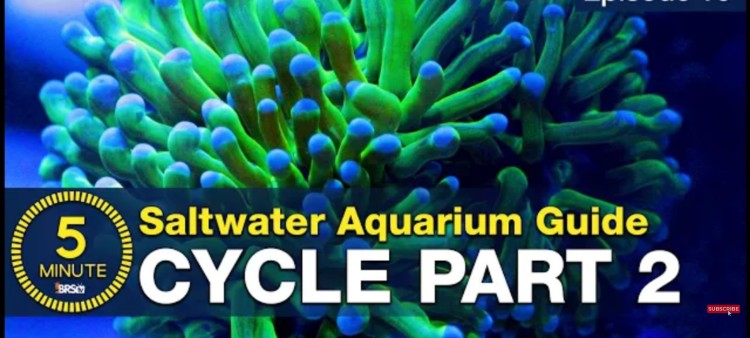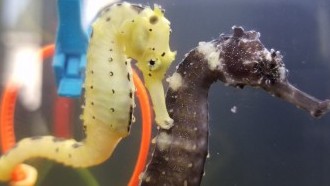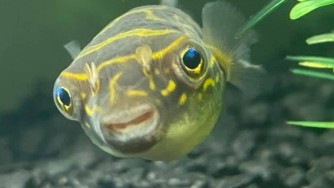How to Skips the Ugly Phase: A Guide to Cycling Your Tank
- Apr 04, 2022
- Anshika Mishra
- 1436 0 0

In order to stop or limit, avoid many of the challenges the reef aquarium owners into. It's time to talk about phase two of the cycle, which is usually conducted at the 4-month stage of the aquarium.
This goes way beyond the ammonia or nitrogen cycle and gets to the heart of setting up a tank for success.
The challenge here is that the new aquarium tends to have what's commonly referred to as an ugly stage where the rock turns brown, various algae take hold, and bacterial issues like red or brown slime cover the stone. You run into that, don't worry.
It is pretty common and often only temporary. There's a ton of brand new surface area on the rock and sands, and there's total global warfare going on in a newly started tank.
Every last organism is fighting for territory. However, most of the battle is at the microscopic level. Only visible to the human eyes when something gets way out of hand.
So, the four-month cycle is all about supporting the right organism to fight off the bad. Also, focusing on an ounce of prevention is worth a pound of cure.
So, if you follow the advice here, avoid all this nearly effortlessly, versus dealing with it afterward takes a more involved strategy.
So, these are the three steps reefers should consider.
First Step
Before you turn the lights on, get utilitarian fish thriving in the tank. You will need to get small Tangs, and they will eventually outgrow these tanks, so be prepared to upgrade in 18 months.
Get fishes that eat algae for a living, adn why we put them in this tank is to establish the ecosystem for a couple of months before you turn the lights on; the chances of you running into serious issues common with new tanks are cut down by 80%.
We want you to be a part of the 80%.
You can also add six-line Wrasse or yellow or green Wrasse during that time because it eats some of the coral parasites adn protect the reef tank in general.
Second Step
Before turning the lights on, send in the microscopic troops you were to help win the battle. In this case, heterotrophic bacteria troops rely on food sources, potentially sludge, or even pest forms of bacteria.
Dosing bacteria like this is far from required, but the goal here is the easiest path to success, and heterotrophic bacteria are just a valuable tool that helps achieve that.
In fact, in many cases, they can be so effective that it almost feels like cheating. You should start the dosing when the nitrogen cycle has completed, but weeks before you turn the lights on. Then do it every couple of weeks until you're confident that you are past that new tank stage.
These types of bacteria don't replicate in seawater, so they do need to be done to prevent or deal with issues intended.
Here we are taking an aggressive approach to avoid algae altogether. Because algae and pest outbreaks are one of the biggest challenges, Reefer runs into. Tragically, the hardest part of owning a reef tank is the first year because it gets exponentially easier after that point.
Your point to cycling like this is designed to make you wonder why that is because your first ears were a total breeze.
Third Step
The third step in the cycle is in unison with these other two. Just sit back and enjoy the fish for the first four months, but do so with the lights off.
It is best to let the microscopic warfare play out without light for the first few months. That's because reef lighting is very bright and fuels the growth of photosynthetic pests, like algae and brown and red slimes.
There's a much higher success rate with letting the tank build up natural biofilms of beneficial bacteria before turning on the lights.
Time to Turn the Lights On
So, at the end of the four months, flip the switch and turn the light on with a purple rock like a real reef, algae-eating utilitarian fish and send in the proper bacterial troops. You may skip the ugly stage almost entirely.
However, if you run into some issues, just let them run their course before adding corals.






About author